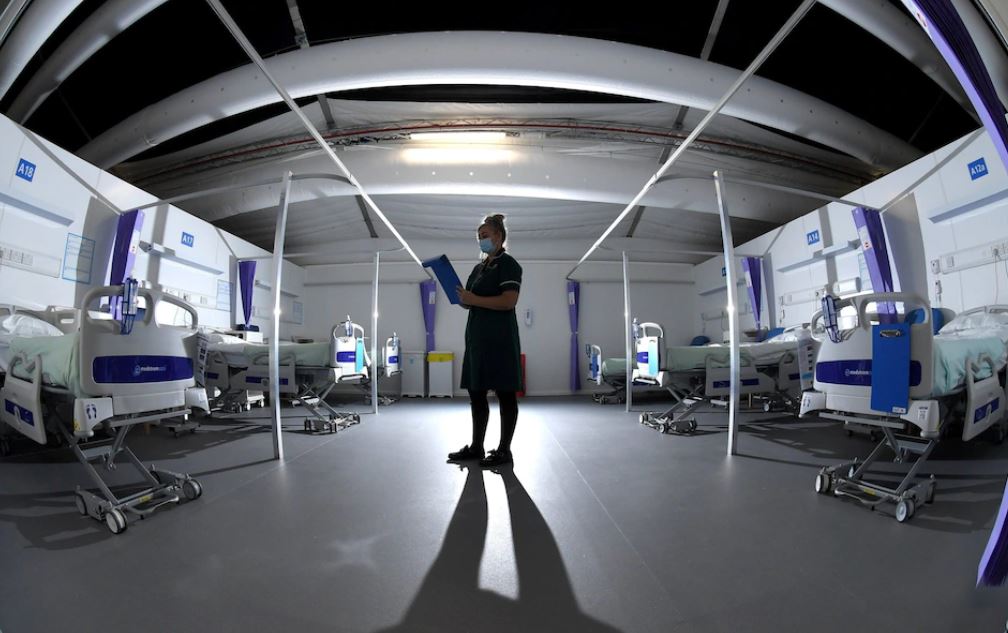True cost of temporary Covid treatment sites revealed as one facility is said to have treated ‘roughly’ seven people since opening
The Nightingale surge hubs cost more than £10.6 million to set up but have admitted roughly seven patients, it has emerged.
Eight temporary sites were built at hospitals across the country during the height of the omicron wave, with the capacity to house about 100 patients each.
However, it has now been revealed that the hubs cost £10,672,088 to build and only one has admitted a handful of patients.
The surge hub at the Royal Preston Hospital in Lancashire, which was erected in its car park, began admitting non-Covid patients last week, with about seven in the facility as of Friday.
This puts the cost per patient treated in the hubs at roughly £1.5 million. NHS North West would not confirm if any more patients have been admitted.
Announcing the hubs in December, NHS England said they would be used if “the record number of Covid-19 infections leads to a surge in admissions and outstrips existing capacity”.
However, as of Jan 30, there were 1,285 daily admissions, an eight per cent decrease on the previous week.
A spokesman for NHS North West said that the patients in the surge hub were all “low acuity” and that the health system in Lancashire and south Cumbria was experiencing a period of “sustained pressure” due to omicron.
The opening of the Royal Preston site came as hospitals across England struggled to discharge patients who are fit to leave – so-called “bed blockers”.
On Jan 23, the most recent date for which figures are available, out of 18,075 patients in England who were medically fit to leave, 12,984 – 72 per cent – were still in hospital.
Of the patients medically fit to leave Lancashire Teaching Hospitals NHS Foundation Trust, which includes the Royal Preston Hospital, only about a third were discharged on Jan 23.
The cost of the hubs was revealed in response to a written question submitted by Damian Green, the Conservative MP whose Ashford constituency is also home to another omicron Nightingale hub.
Edward Agar, the health minister, replied: “No decision has been made to stand down the Nightingale hubs. This is being monitored daily by the National Health Service and the capacity will be stood down as and when the situation improves.”
The chief executive of the William Harvey Hospital, in Ashford, Kent – the location of another of the eight omicron hubs – has expressed concerns that the structure “may adversely impact” other services and never be used.
In a report to the hospital trust’s board, Susan Acott said that the hub had created additional problems for the hospital, including parking for patients and staff, the Health Service Journal reported.
Mr Green said that the temporary sites were an “insurance policy” and added “it looks like they won’t be needed”.
He called on ministers to assess if they could be repurposed to help clear the backlog of patients waiting for treatment.
It is understood that no national guidance has been issued regarding the sites, while individual trusts and hospitals are able to make their own decisions about their future use.
An NHS spokesman said: “As has been the case since December, the Nightingale hubs are there to be used if local health systems come under very intense pressure.”
Source: The Telegraph

